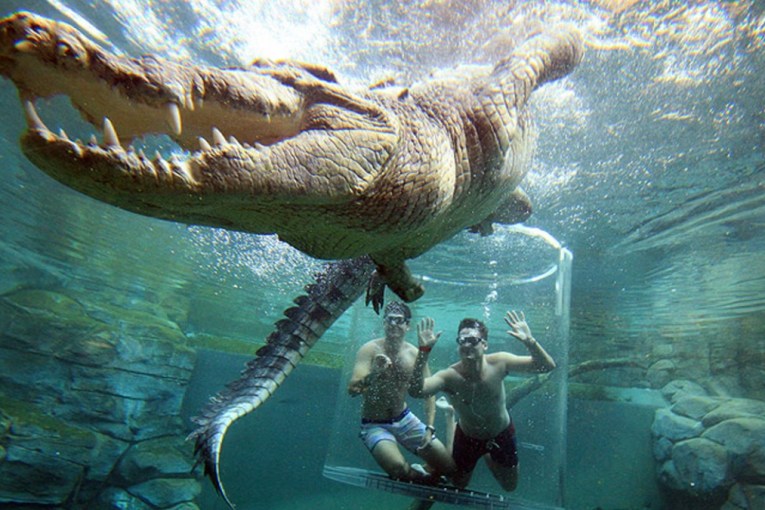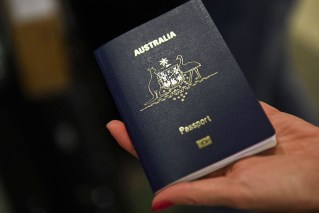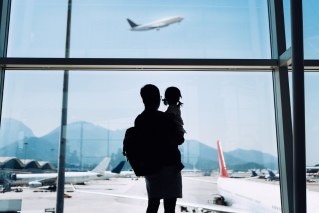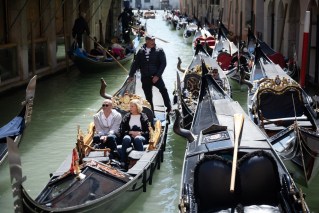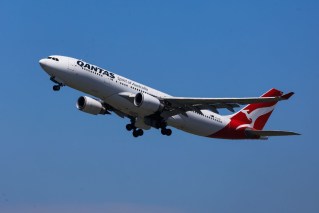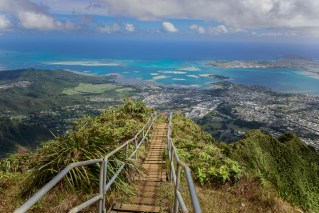Summer fires a risk for domestic tourism, but they have not stopped travellers to Europe

Fire and rising temperatures haven’t discouraged Australians from planning their next European holiday, but a record-breaking summer could have severe impacts on the domestic tourism industry.
Locals and travellers are being evacuated from the island of Rhodes, a popular tourist destination, after fires caused by record temperatures continue to put lives in danger.
Erica Kritikides, general manager of product at Intrepid Travel, said there hasn’t been a decrease in the number of people booking trips to Europe.
“If anything we’ve seen a significantly higher number of people booking, particularly during the traditional high season period,” she said.
“While you have to be really careful on linking climate change and direct causation, we are seeing an impact.”
Intrepid Travel, which runs about 1000 itineraries in more than 100 countries, is seeing on average one trip a week affected by weather-related events.
Australian Federation of Travel Agents CEO Dean Long said there is usually an immediate impact on the number of travellers when a natural disaster occurs.
“It hasn’t really changed from what it’s been over the long term. It’s not having an impact on forward bookings,” he said.
“People are just concerned about it being a safe destination if there’s fires, floods or social unrest, but in the long term we don’t see it having any impact on summer next year for Europe.”
Australian tourism
Dr David Beirman, a senior lecturer in tourism at University of Technology Sydney, said because people plan their holidays months in advance, the effects of natural disasters often aren’t felt immediately.
“People from the United Kingdom, Scandinavia and all of those northern European countries, they love the idea of getting away from their winter into our summer,” he said.
“What goes with that, of course, is the fact sometimes our summers get so hot that we descend into bushfires just as southern Europe is doing right now.”
The Black Summer bushfires cost the Australian tourism industry an estimated $4.5 billion because poor air quality, bushfires and perceived danger kept international travellers away during what should have been a peak period.
Ms Kritikides said destinations like Kangaroo Island, which was significantly affected by bushfires, are only just starting to bounce back.
“We’re certainly starting to see fantastic bookings for Kangaroo Island,” she said.
“Tourists or travellers are conscious that once they’re going to get a wonderful experience that they’re expecting in a destination again, they’re willing to go.”

Kangaroo Island was ravaged by bushfires in January 2020. Photo: AAP
Record temperatures are expected throughout Australia in coming summers, which in turn brings a high risk of bushfires.
Dr Beirman said the further away you are from the destination, the worse a natural disaster tends to be perceived.
“Depending on the extent and ‘graphicness’ of the media coverage, it will often influence if people want to go to a place,” he said.
“If they feel a place is really dangerous and burning to the ground, they’ll probably avoid it.”
Adapting to a changing climate
Tourism represents a $36.5 billion industry within Australia and employs 727,000 people, but it is vulnerable to natural disasters and climate change.
Dr Beirman said snow tourism is an area that will need to adapt to rising temperatures and “nowhere is this more applicable than here in Australia”.
“Our highest mountains are pretty low and we don’t get the sort of snow that makes it ideal for there to be a really good ski season,” he said.
“Ski resorts will need to diversify their offering to tourists, if they know there isn’t going to be much snow or no snow: Hiking arrangements, kayaking, what sort of other activities can people do besides skiing?”
A 2020 study found the winter tourism industry worldwide will see a 64 per cent drop in demand if global temperatures continue to rise at projected rates.

Australian snow resorts like Thredbo are at risk from climate change. Photo: thredbo.com.au
He said it is increasingly important for tourism businesses to offer protection for their clients if they operate in high-risk areas.
“The amazing thing at the moment is that British travel agents are still selling tours to the Greek island of Rhodes,” Dr Beirman said.
“If I was a wholesaler, I’d probably be trying to discourage people from going right at this moment.”
Tourism accounts for about 8 per cent of global carbon emissions, with the majority coming from high-income countries like Australia.
Ms Kritikides said the tourism industry has an important role to play in addressing climate change.
“It’s really incumbent on the industry to take a strong leadership role in recognising we all need to be part of the solution,” she said.
“Certainly climate change is something that isn’t going to slow down and increasingly it will have an impact on the way we operate.”
